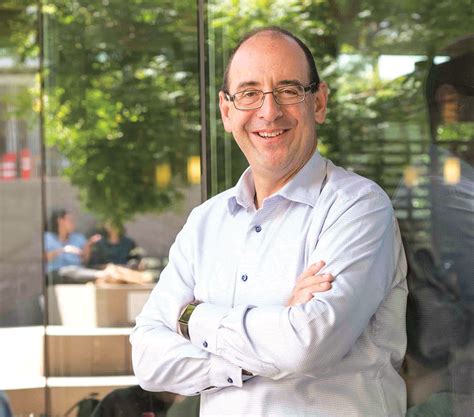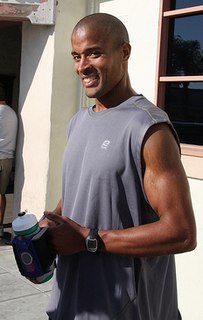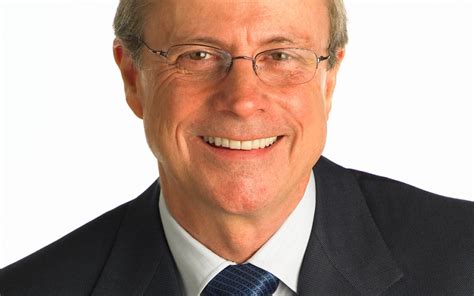A Quote by Robert McKee
We often put off doing something for as long as possible, then as we finally make the decision and step into the action, we're surprised by its relative ease. We're left to wonder why we dreaded it until we realize that most of life's actions are within our reach, but decisions take willpower.
Related Quotes
Once we have a sense of how long a decision should take, we generally should delay the moment of decision until the last possible instant. If we have an hour, we should wait 59 minutes before responding. If we have a year, we should wait 364 days. Even if we have just half a second, we should wait as long as we possibly can ... Life might be a race against time but it is enriched when we rise above our instincts and stop the clock to process and understand what we are doing and why. A wise decision requires reflection, and reflection requires a pause.
Pain is a spiritual wake-up call showing you that there are oceans you have not yet explored. Step beyond the world you know. Reach for heights that you never thought possible. Go to places you have deemed off limits. This is the time to take off the shell of your past and step into the rich possibilities of your future. God does not give us dreams that we cannot fulfill. If you want to do something great with your life-whether it's to fall madly in love, become a teacher, be a great parent-if you aspire to do something beyond what you are doing now, this is the time to begin. Trust yourself.
There is usually a clock in our heads regarding decisions we make and the course of our lives. Sometimes this clock is helpful in that it get us to move rather than put off key actions. Other times, it creates us false sense of urgency that can cause us to overreact, lost patience and make poor decisions. In raising this issue in my book, I want people to be aware of the clock in their heads and question whether that clock is helping or hindering the quality of each particular decision.
Some make light of decisions, arguing that all possible decisions will occur. In such a world, how could one be responsible for his actions? Others hold that each decision must be considered and committed to, that without commitment there is chaos. Such people are content to live in contradictory worlds, so long as they know the reason for each.
Most often, the reason something is "on your mind" is that you want it to be different than it currently is, and yet: you haven't clarified exactly what the intended outcomes is; you haven't decided what the very next physical action step is; and/or you haven't put reminders of the outcome and the action required in a system you trust. That's why it's on your mind.
I believe that earning your living doing something you enjoy is one of the very best ways to nourish yourself. But even if you are employed at something that is not your ideal work, it is important to find ways to take as much pleasure in it as possible. Living in the present moment can make ordinary activities more interesting and joyful; you may be surprised, if you only look, at what you will find. If you try to stay connected with why you are doing what you are doing, for example, then even the parts of your life that aren't especially interesting can become more meaningful.
The usual method of creation for most human beings is a three-step process involving thought, word, and deed or action. First comes thought; the formative idea; the initial concept. Then comes the word. Most thoughts ultimately form themselves into words, which are often then written or spoken. This gives added energy to the thought, pushing it out into the world, where it can be noticed by others. Finally, in some cases words are put into action, and you have what you call a result; a physical world manifestation of what all started with a thought.
The way to make better decisions is to make more of them. Then make sure you learn from each one, including those that don't seem to work out in the short term: they will provide valuable distinctions to make better evaluations and therefore decisions in the future. Realize that decision making, like any skill you focus on improving, gets better the more often you do it.
Decision-making is difficult because, by its nature, it involves uncertainty. If there was no uncertainty, decisions would be easy! The uncertainty exists because we don't know the future, we don't know if the decision we make will lead to the best possible outcome. Cognitive science has taught us that relying on our gut or intuition often leads to bad decisions, particularly in cases where statistical information is available. Our guts and our brains didn't evolve to deal with probabilistic thinking.
We should probably start searching around a little earlier in our lives for what I call parallel activities, because most of us get entrenched in our careers. And, of necessity, we're earning a living, and it's taking our time, and we're building our résumé, and we want our résumé generally to be our proficiency within our field, because chances are we're going to be applying for another position within the field. So we tend to put off a lot of this sort of what I call parallel discovery until we're either very successful and have the time to do that, or more often until we're retired.
There was rarely an obvious branching point in a person's life. People changed slowly, over time. You didn't take on step, then find yourself in a completely new location. You first took a little step off a path to avoid some rocks. For a while, you walked alongside the path, but then you wandered out a little way to step on softer soil. Then you stopped paying attention as you drifted farther and farther away. Finally, you found yourself in the wrong city, wondering why the signs on the roadway hadn't led you better.

































